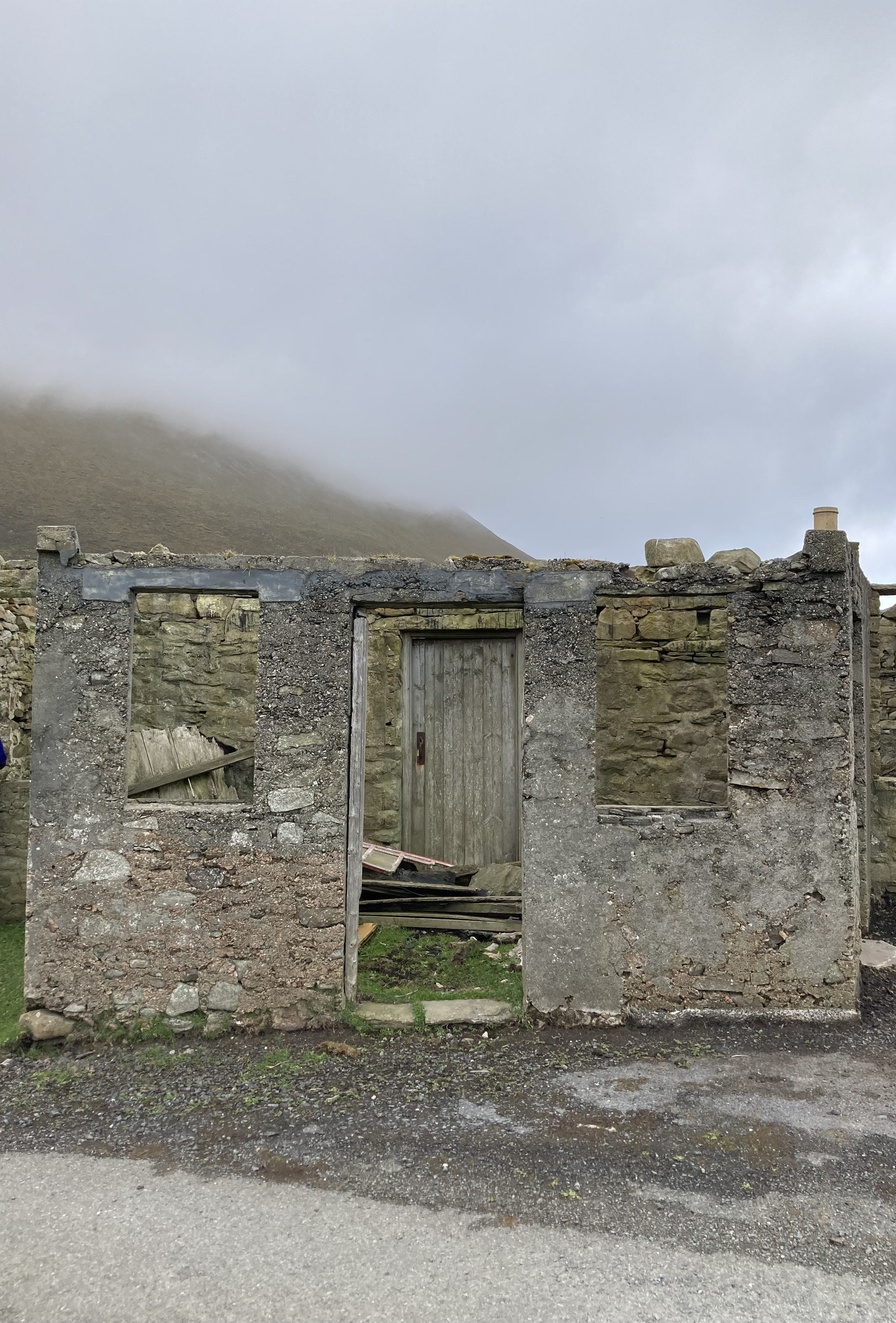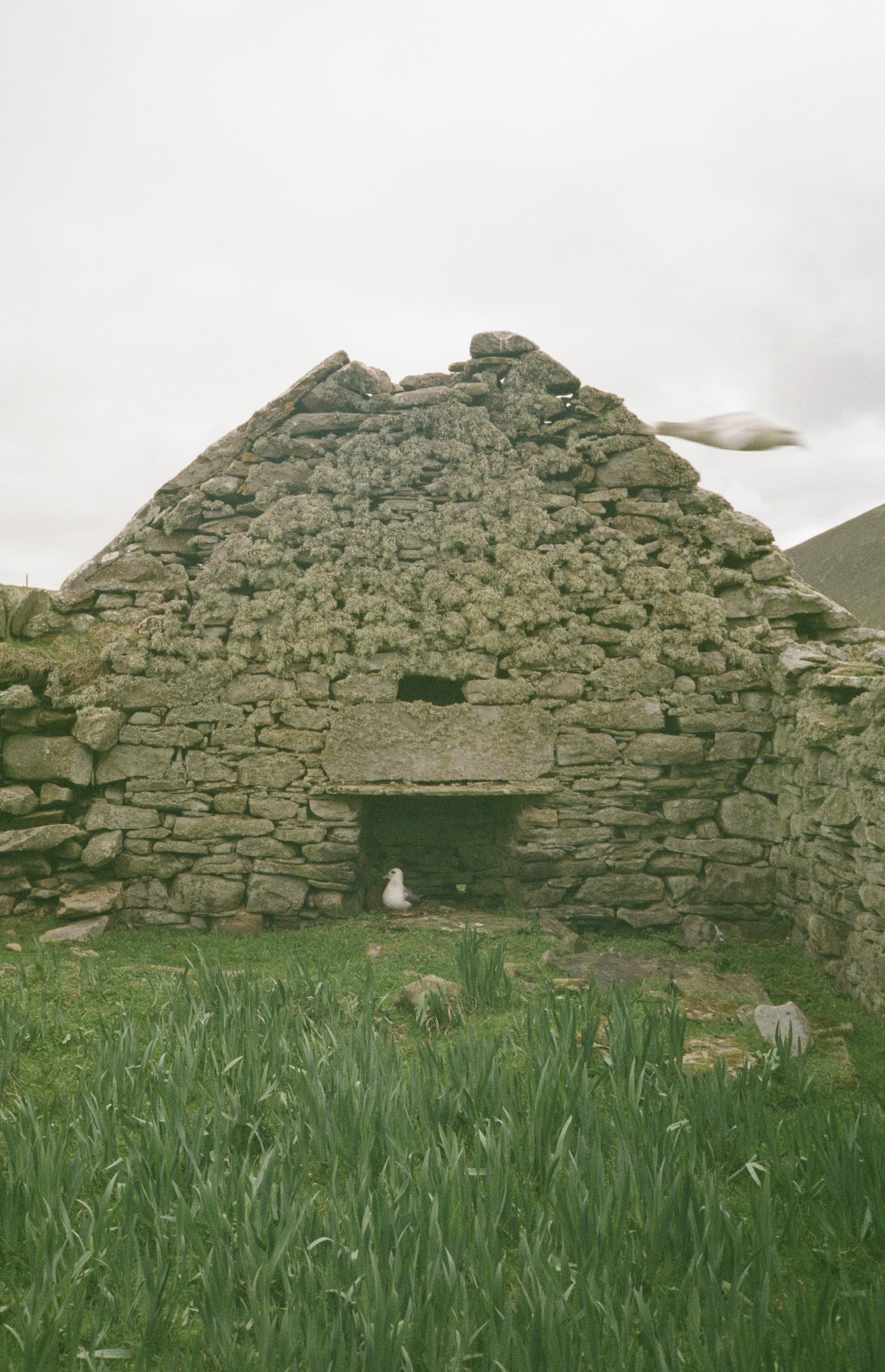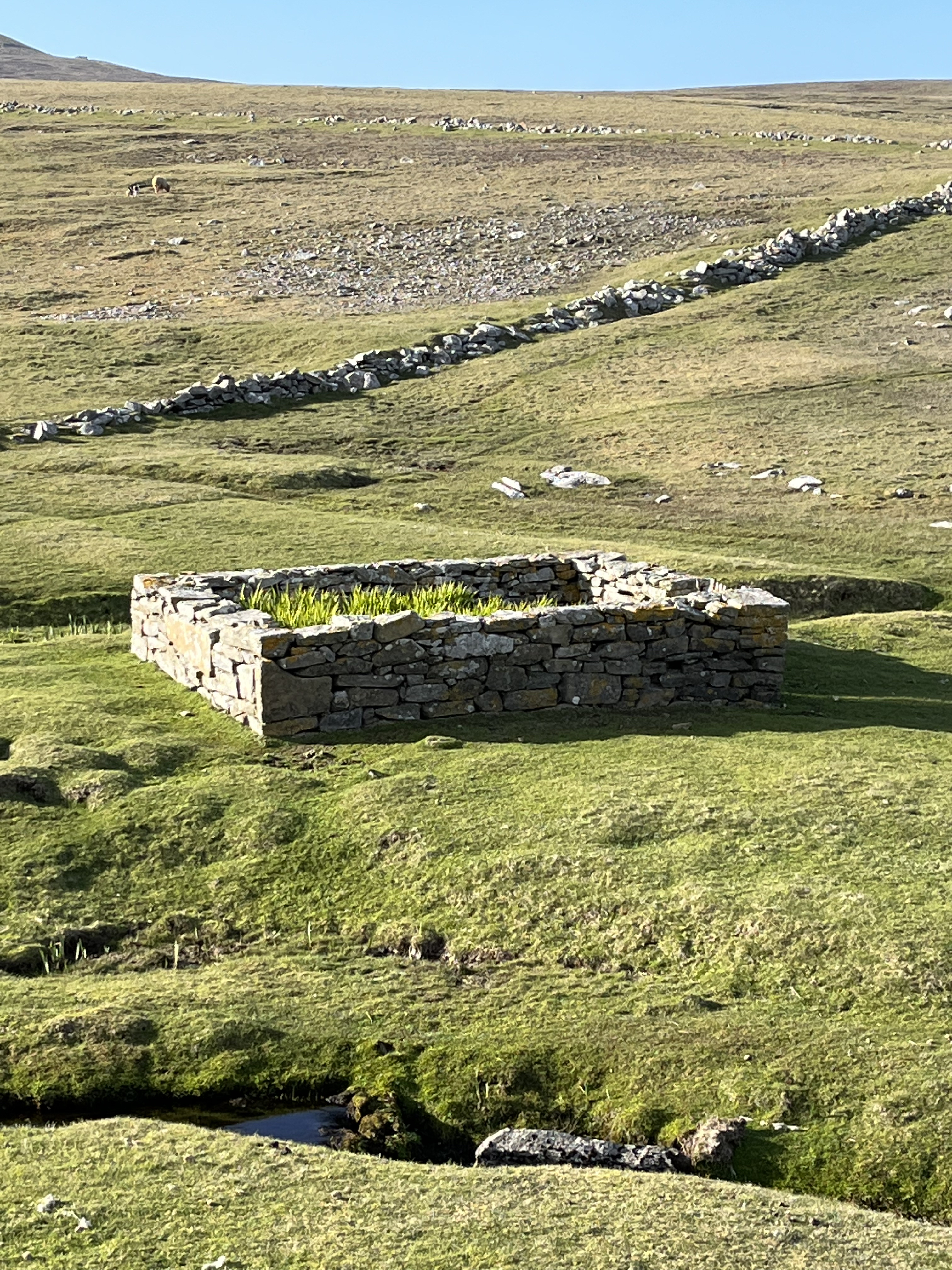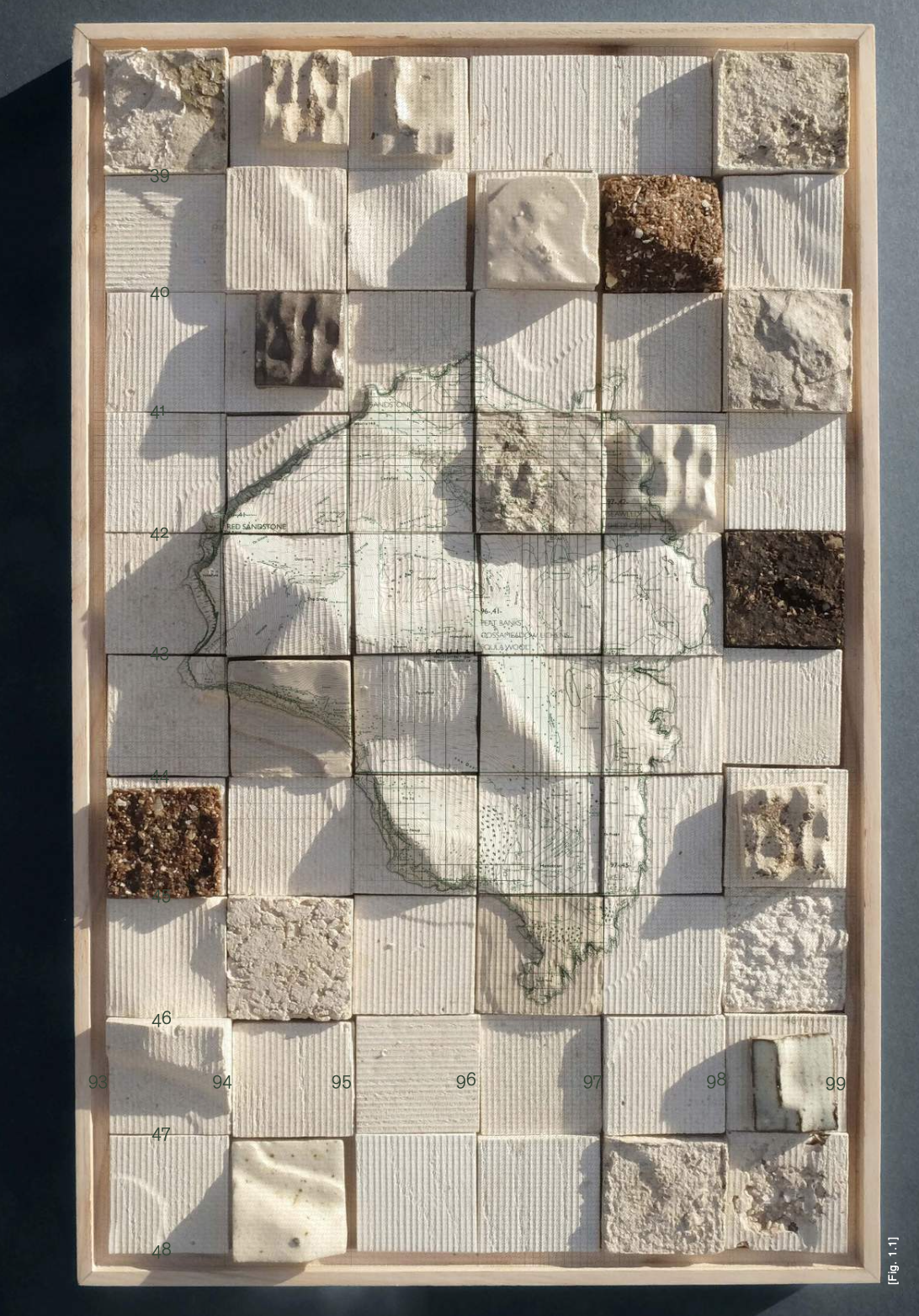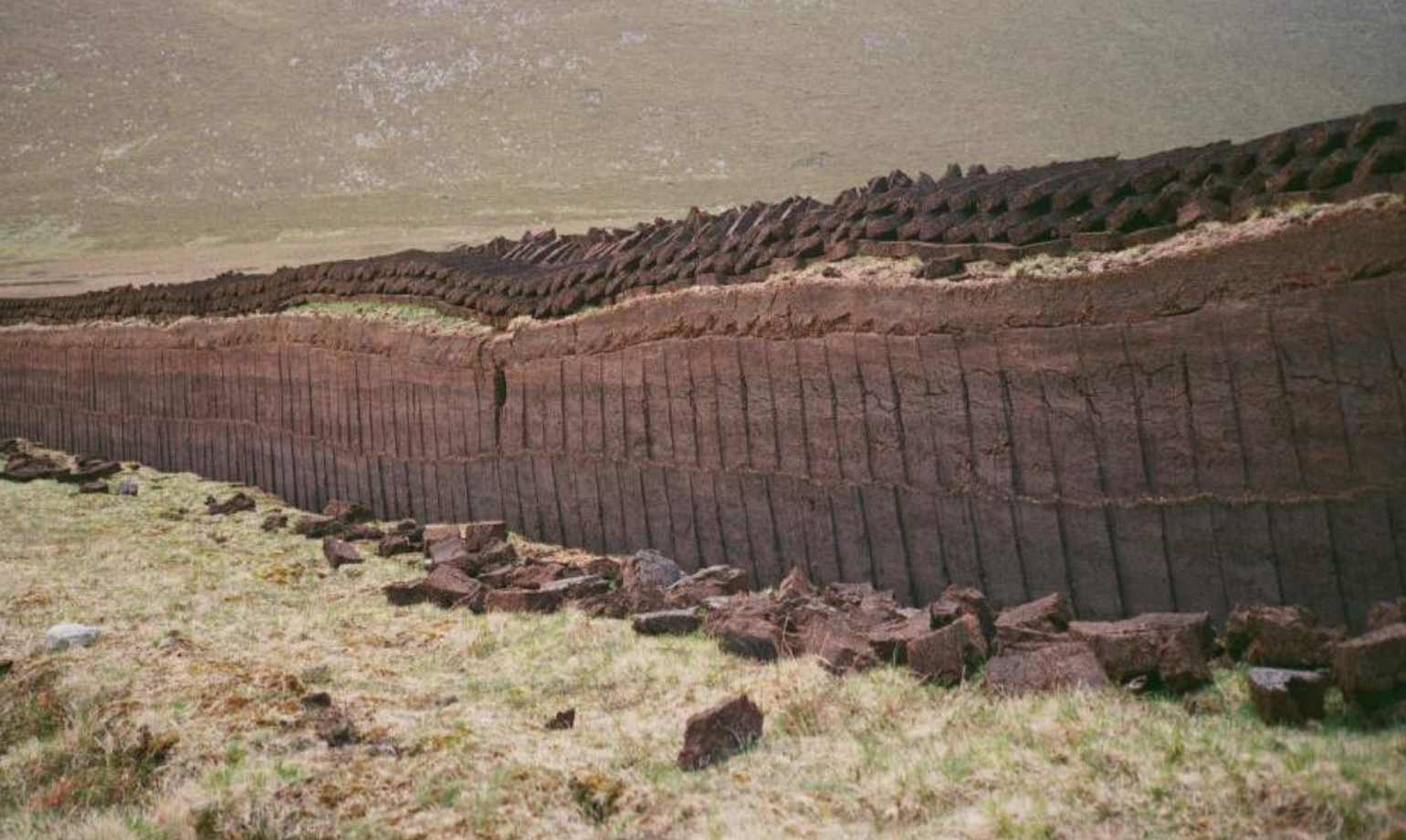
FOULA,
A BIO-MATERIAL LIBRARY
The landscape of Foula, and the Shetland Islands alike, is an interconnecting tapestry of thousands of years of human occupation. Stories of island existence are woven tightly to the rich material landscape. They hinge upon self-sufficiency, improvisation, and resilience, locality, craft, and an embedded understanding of interconnected ecologies, in conversation with the historic and political heritage of a place.
Foula is one of six islands in the Highlands and Islands successfully selected as a ‘pioneering island’ in the Clean Energy for EU Islands programme. As part of this off-grid consortium, Foula positions itself at the forefront of energy autarky. In parallell, there is opportunity to look to abundant regenerative resources as part of the case study for decarbonisation. An island brimful from soil to sea, material stories form the basis of these research investigations. By synthesising historic and future applications of materials in these island bioregions, how can oral lore, craft, and histories of the land aid the future of circular bio-based economies?
Year: 2022 - Ongoing
Project Type: MATERIALS, ECOLOGY
Collaborators: Foula Heritage
Team: Alys Hargreaves, Millicent Green
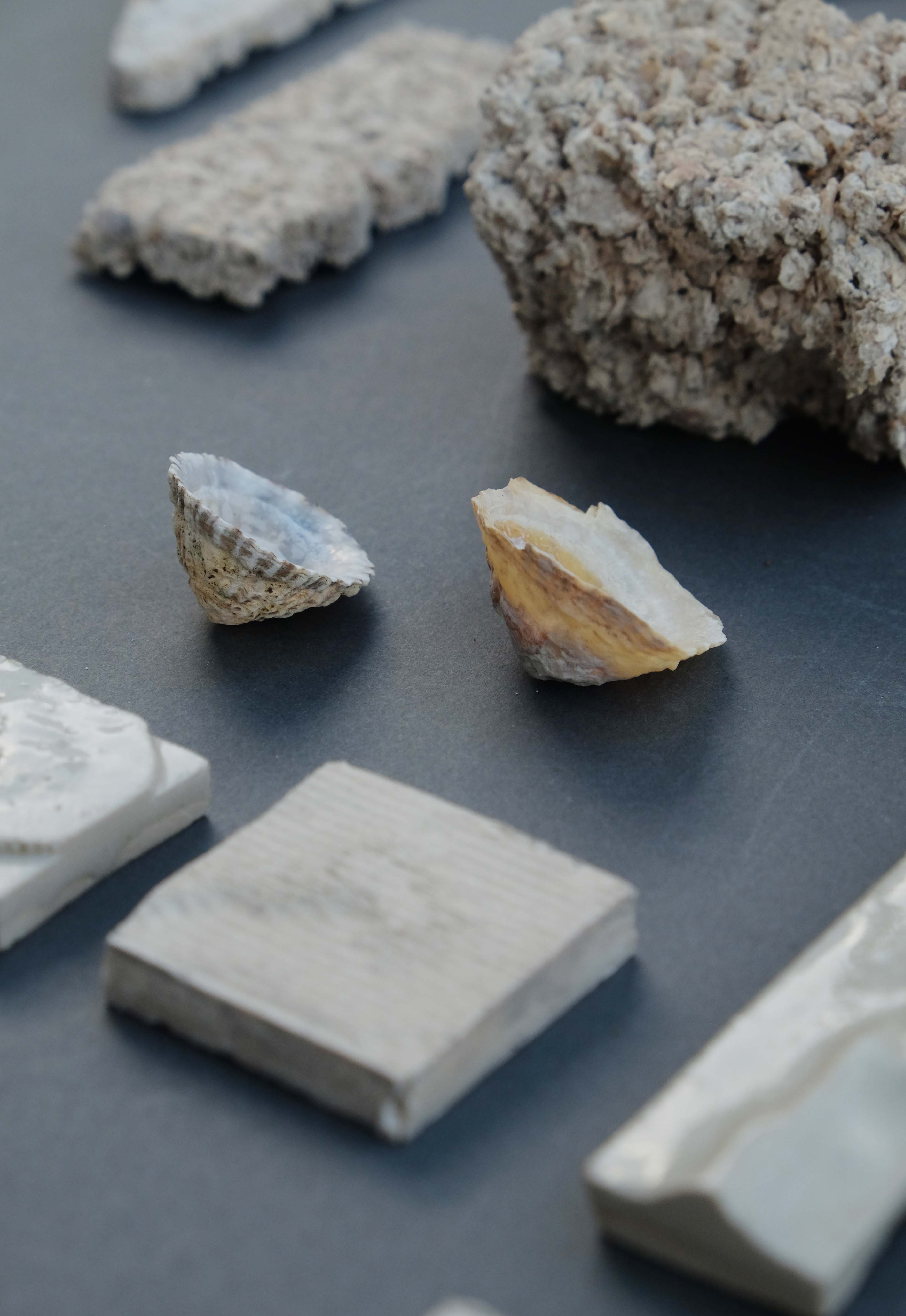
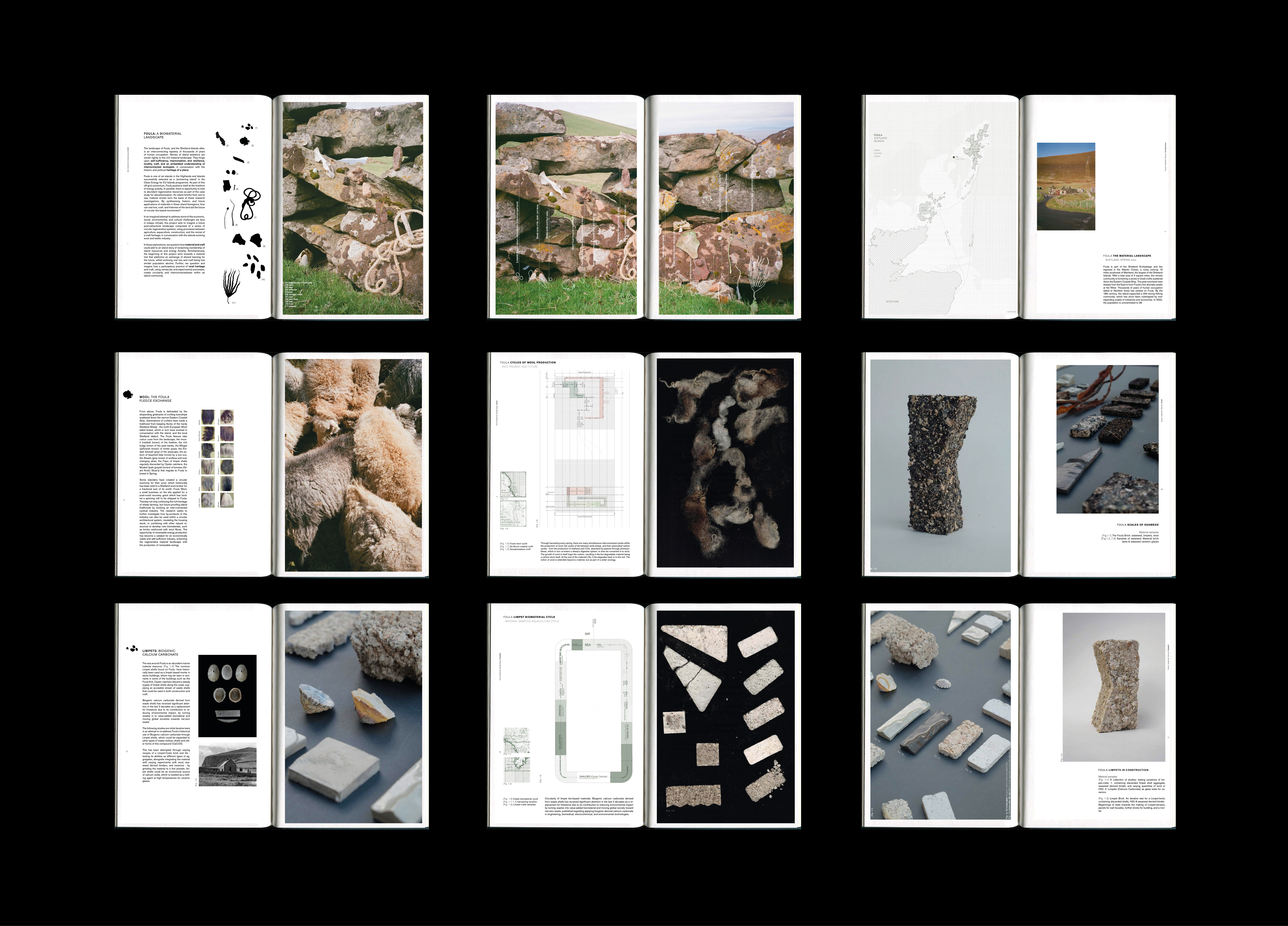
In these explorations, we question how material and craft could add to an island story of reclaiming owndership of island resources and energy Autarky. Simultaneously, the beginning of this project aims towards an on-going bio-retrofit and experimental restoration project using these local resources, that platforms an exchange of shared learning for the future, whilst archiving oral lore and craft being lost amidst population decline. Further, we question and imagine how a participatory practice of local heritage and craft, using vernacular and experimental processes, create circularity and interconnectedness within an island community.

